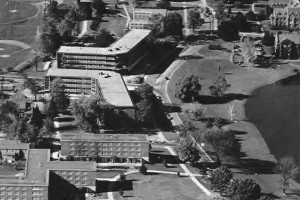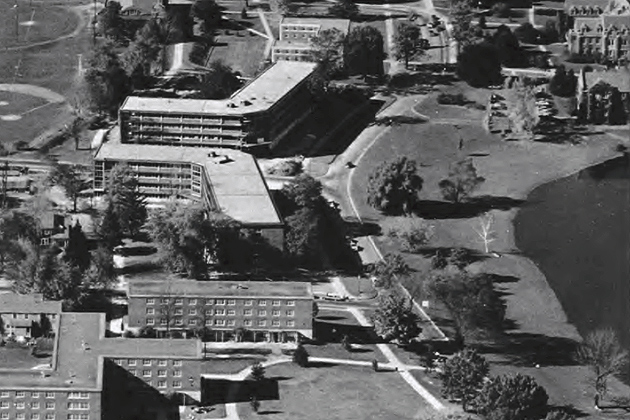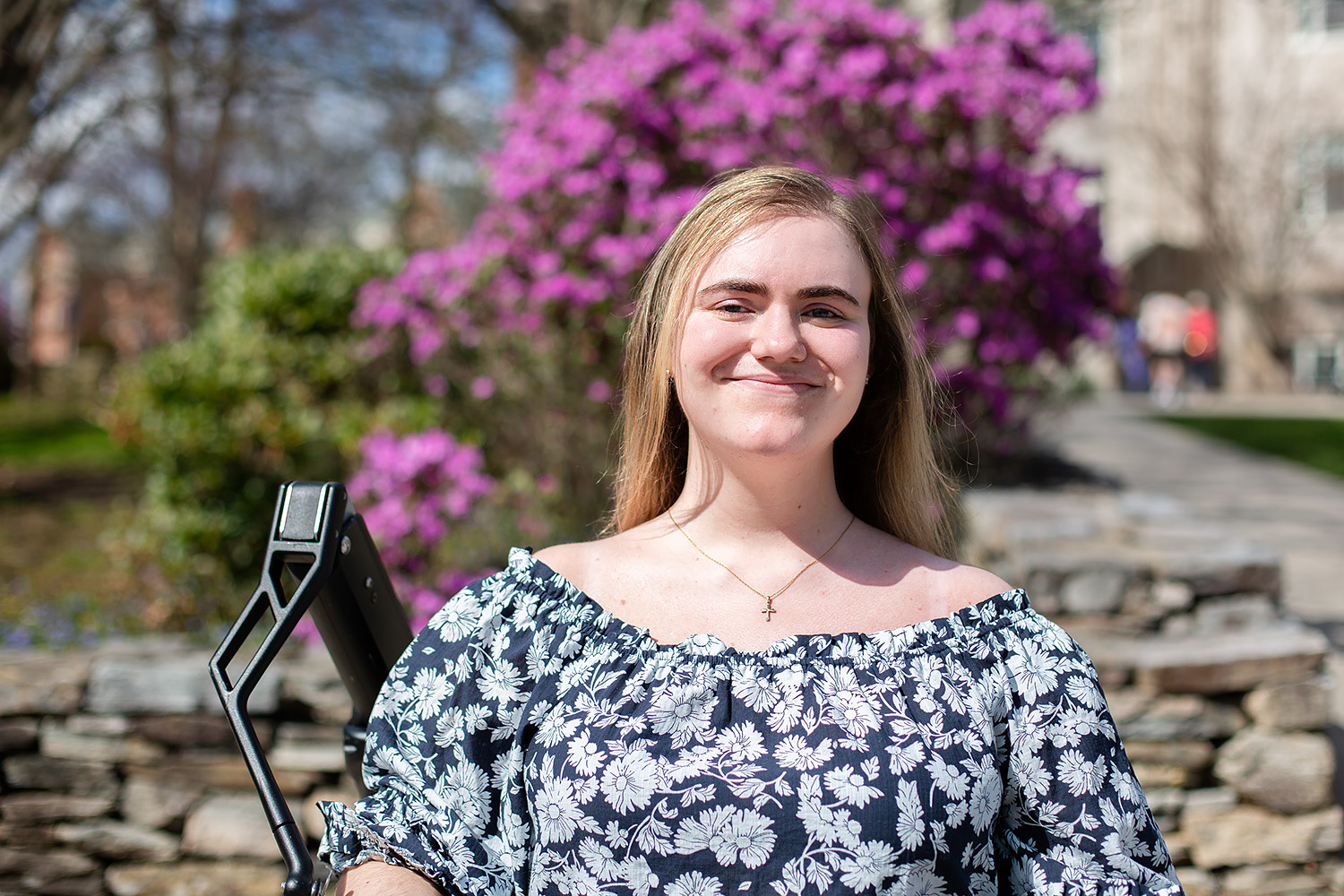The dedication of Oak Hall on Oct. 24 marks a significant milestone in UConn history, and serves as a reminder of the University’s commitment to humanities and responsiveness to a growing student population. Oak and Laurel Halls, UConn’s most recently completed projects, are both physical and symbolic reflections of the Arjona and Monteith buildings.

Built in 1959, Arjona and Monteith were part of President Albert Jorgensen’s (1935-1962) response to an enrollment influx due to the GI Bill following WWII and the Korean conflict. During his presidency, the University of Connecticut transformed from a small college of 800 students into a great public university. According to the President’s Office Records, “He is perhaps best remembered as the architect of the University campus. Most of the permanent buildings on the campus today are monuments to the energy, ability and vision of President Jorgensen.”
After Jorgensen’s death in 1978, President Glenn W. Ferguson said that he was, “A ‘builder’ in the philosophical sense; a champion of academic freedom, a person who recognized that excellence is the critical quest for a university, who created this university from a state college, and who built an institution that cared about its future and cared about that quest for excellence.”
The construction projects of the 1950’s were vast, and included dormitories, the Jorgensen Center for the Performing Arts, and academic buildings such as Arjona and Monteith.
The latter two buildings were named for faculty members who had an obvious dedication to and love for the humanities and social sciences. Jaime Homero Arjona, former head of the Foreign Languages Department (1946-1964), joined the University as an instructor in 1932. Under his leadership, the Department became one of the most significant in the College of Liberal Arts and Sciences (CLAS). Henry Ruthven Monteith was a Dartmouth-educated lawyer, teacher, and classical scholar who was hired to “bring a more classical attitude to the campus.” An English and History professor, he also served as advisor to The Lookout, the predecessor of the Daily Campus.
Since their opening in 1959, Arjona and Monteith have served as the home of classrooms and faculty offices for the College of Liberal Arts & Sciences. But with enrollment at an all-time high and humanities and social sciences continually expanding, Oak and Laurel Halls will assist in accommodating the growing needs of CLAS. Laurel Hall, located between the John W. Rowe Center for Undergraduate Education and the Student Union, includes two auditoriums that can seat 200 and 400 people, as well as 17 classrooms of varying size that can seat between 25 and 70 students each. Oak Hall, next to the Homer Babbidge Library, also includes classroom space and will be the new home of the departments of political science, linguistics, modern and classical languages, economics, and journalism.
The commitment to humanities is still as apparent as it was when Professors Arjona and Monteith served the University. President Susan Herbst, during the 2011 Humanities Institute Reception said, “One of the University’s many draws – and, I believe, one of its greatest strengths – is its commitment to scholarship in the humanities.”
The dedication of Oak Hall will take place Oct. 24. President Susan Herbst will make the opening remarks. Sarah Binder, senior fellow in Governance Studies at the Brookings Institution and professor of political science at George Washington University, will speak on the topic, “Inside Congress: Legislating in Polarized Times,” followed by Q&A and a reception with refreshments.



